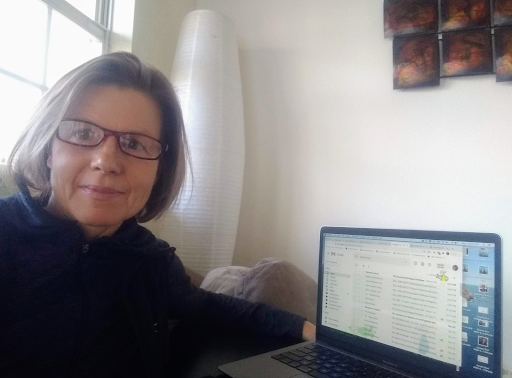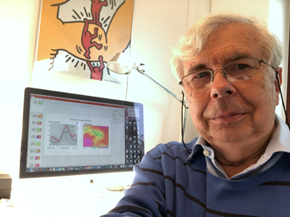ACOM Directors' Message
We are pleased to present the 2020 Laboratory Annual Report (LAR) for the Atmospheric Chemistry Observations and Modeling (ACOM) Laboratory. This has been a challenging year given the COVID-19 situation but thanks to the dedication and engagement of its staff, the Lab has kept up its high level of productivity. This is demonstrated by the exceptional science and community service highlighted in the following sections.
As a laboratory belonging to a National Center, ACOM has a particular responsibility: support the broad agenda of the US research community, in particular the university groups that conduct research in atmospheric chemistry. To embrace the broad agenda of the community, ACOM must therefore have a broad interest and maintain different competences supporting experimental as well as modeling aspects. At the same time, it must tackle difficult, focused and intellectually challenging frontier questions that are in line with national and international research priorities. In this regard, the overall objective of ACOM is to advance the fundamental knowledge required to improve our predictive capability of short-term chemical weather and long-term chemical climate.
ACOM has continued important work in the four objectives the Lab has identified as its major research programs. Some highlights are included here.
Reactive Carbon Chemistry from biogenic, pyrogenic and anthropogenic species under different NOx environments
Fundamental understanding of atmospheric chemistry in different regimes is crucial for developing and improving models and providing robust and reliable predictions to policymakers. Some of the research activities have evolved around the analysis of wildfire chemistry using field campaign observations from the 2018 NSF WE-CAN and 2019 NASA/NOAA FIREX-AQ campaigns. Studies are centered around plume chemistry involving detailed chemical analysis with GECKO-A to regional and large scale fire impacts using WRF-Chem, WACCM and MUSICA.The Lab also has taken the unique changes in atmospheric composition due to COVID-19 as an opportunity to study how the related restrictions impacted emissions and their chemical transformation globally.
The Role of the Whole Atmosphere for Tropospheric Predictability
The influence of the complex interactions between chemical, radiative and dynamical processes across the Whole Atmosphere on air quality, weather and climate variability and change remains poorly quantified. Staff conducted important research on how increased forecasting lead times for sudden stratospheric warmings could improve daily to subseasonal predictability in the troposphere. COVID caused the deployment of the Asian Summer Monsoon Chemical and Climate Impact Project (ACCLIP) to be postponed but the ACCLIP Team nevertheless made progress by enhancing its level of preparation by conducting a dry run and improving upon the forecasting activities.
Development of a Unified Community Multi-scale Modeling Infrastructure for Chemistry and Aerosols (MUSICA)
A major mission of NCAR and ACOM is to develop and support community models. The development of MUSICA has made significant progress in the past year with the release of MUSICA-V0 as well as a version of MusicBox. MUSICA is now not only being used within NCAR but has extended its user community to national and international collaborations with a range of different applications ranging from air quality in different regions of the world to chemistry-climate feedback. The MUSICA Steering committee together with the Working Group Chairs have worked on a MUSICA vision paper which has been published in BAMS.
Development of an advanced observations capability
The support of the community with specialized chemical instrumentation is a major component of NCAR and ACOM. With restricted on-site access and the cancellation of field campaigns, COVID-19 has shown an impact on instrument work. Despite these challenges, the Lab has successfully conducted numerous updates on ACOM’s suite of requestable instruments and made important updates to calibrations and software. As feasible, work on modernizing the Lab’s observational capabilities has been ongoing and the actual development is expected to take off next year. Specific emphasis is on a state-of-the-art instrument based on chemical ionization mass spectrometry for the quantification of complex multi-functional organics both in the laboratory and in the atmosphere, and a modernization of the current chemiluminescence instrument for the measurement of NOx and NOy.
ACOM continued to host visitors and mentor students as well as hold meetings in the new virtual reality. The virtual search for the new ACOM Director has been conducted successfully and we are excited to welcome Pieternel Levelt from the Royal Netherlands Meteorological Institute and the Delft University of Technology as the Lab’s new Director next spring.

Gabriele Pfister
Interim ACOM Director since February 2020

Guy Brasseur
ACOM Director until February 2020